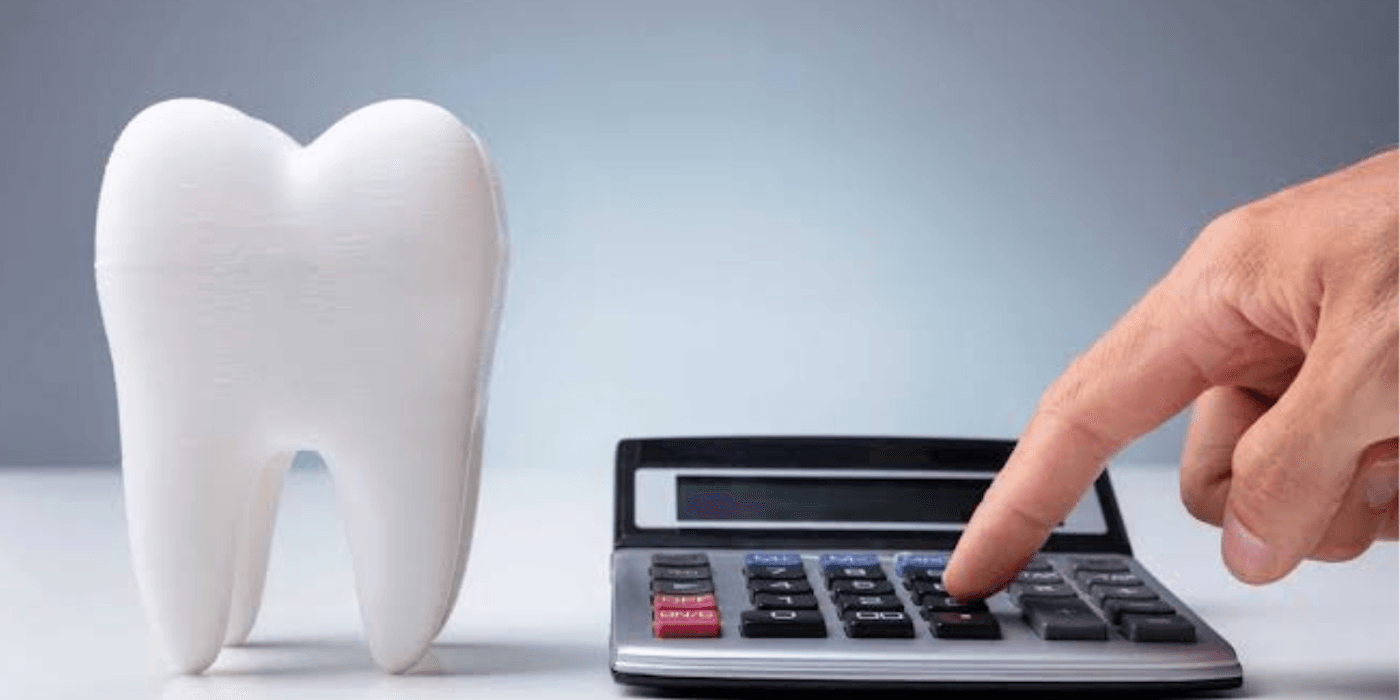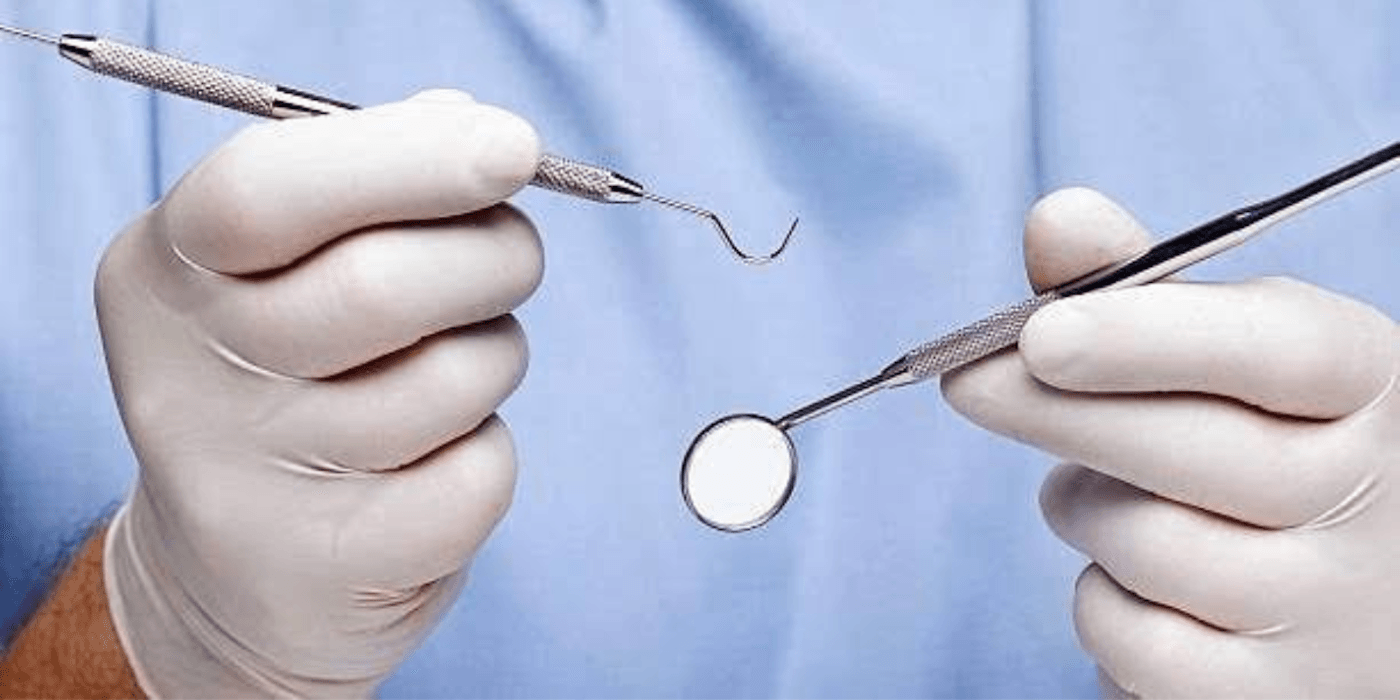Comparing Dental Loans vs Credit Cards: Which is the Better Option for Your Smile?

Introduction
Dental health is a vital aspect of our overall well-being, often overlooked until an issue demands immediate attention. However, maintaining a healthy smile requires regular check-ups and careful financial planning. As you navigate the world of dental care, it's crucial to balance preserving your oral health and managing the associated expenses.
We'll explore using credit cards for dental expenses, finding the best dental benefits providers, and Medicare's role in dental coverage. We'll also look into dental loans and credit cards as financial solutions. Let's dive in to help you make informed choices for a healthy smile and sound finances.
Can You Use a Credit Card at the Dentist?
For many Australians, dental care is a crucial aspect of their overall health and well-being. However, it's not always easy to come up with the necessary funds when faced with unexpected or extensive dental treatments. In such situations, you may wonder, "Can you use a credit card at the dentist?" Let's dive into the details and explore the pros and cons of using credit cards for dental expenses.
Using Credit Cards for Dental Expenses
Credit cards can be a convenient way to cover your dental bills, providing immediate access to funds when needed most. However, before swiping your card at the dentist's office, consider the following aspects:
Pros of Using Credit Cards for Dental Expenses

- Immediate Access to Funds: Credit cards offer a readily available source of funds, ensuring you can address your dental needs promptly.
- Convenience: Paying with a credit card is quick and easy, sparing you the hassle of applying for additional financial products.
- Potential Rewards: Some credit cards have rewards programs that allow you to earn cashback or points on your dental expenses, providing a financial perk.
Cons of Using Credit Cards for Dental Expenses
- Interest Rates: Credit card interest rates can be high, potentially leading to significant interest charges if you don't pay off the balance promptly.
- Minimum Payments: While paying just the minimum amount due is tempting, this can prolong your debt and result in higher overall costs.
- Impact on Credit Score: Frequent use of credit cards or carrying high balances can negatively affect your credit score, impacting future financial decisions.
Tips for Using Credit Cards Wisely for Dental Expenses
If you decide to use a credit card for your dental expenses, here are some tips to ensure you do so wisely:
- Compare Interest Rates: Choose a credit card with a low interest rate or consider using a card with a promotional 0% APR period for dental payments.
- Create a Repayment Plan: Before charging your dental expenses, create a realistic repayment plan to pay off the balance as soon as possible, reducing interest charges.
- Budget Wisely: Incorporate your dental expenses into your overall budget to ensure you can cover the charges without straining your finances.

- Monitor Your Credit: Keep an eye on your credit card balances and credit score to avoid any negative impacts on your financial health.
What Company Has the Best Dental Benefits?
Having the right dental benefits can make a significant difference when ensuring dental health. Dental insurance is a common way Australians secure coverage for dental services. Still, with various providers and plans available, it's crucial to determine which company offers the best dental benefits for your needs.
Understanding Dental Insurance
Dental insurance is designed to help cover the cost of dental care, making it more affordable for individuals and families. Here's what you need to consider when evaluating dental insurance providers:
Comparison of Dental Insurance Providers
- Coverage Options: Different dental insurance plans offer varying levels of coverage. Basic plans typically cover preventive services like cleanings and check-ups, while comprehensive plans include more extensive treatments such as fillings, extractions, and orthodontics.
- Premiums and Deductibles: Evaluate the monthly premiums and deductibles associated with each plan. Lower premiums may come with higher deductibles, and vice versa. Consider your budget and how often you anticipate needing dental care.
- Network Dentists: Many dental insurance plans have a network of preferred providers. It's essential to check if your current dentist is in-network or if you're willing to switch to an in-network dentist.
- Annual Maximums: Dental insurance plans often have an annual maximum benefit limit. Be sure to understand this limit and how it may affect your coverage for major dental work.
Exploring Dental Savings Plans as an Alternative

In addition to traditional dental insurance, dental savings plans are an alternative way to manage dental expenses. These plans typically involve paying an annual fee to access discounts at participating dentists.
Choosing the Right Dental Benefits
The best dental benefits provider for you will depend on your circumstances. Consider factors such as your dental health needs, budget, and preferred dentist when deciding. Remember that regular preventive care can help you avoid more extensive and costly dental treatments in the long run.
Can I Use a Medicare Card for the Dentist?
Medicare plays a crucial role in the healthcare system in Australia, providing access to essential medical services. However, many Australians wonder whether they can use their Medicare card for dental services. Let's explore the relationship between Medicare and dental care.
Understanding Medicare Coverage
Medicare primarily covers medical services and hospital treatments. Unfortunately, dental care is not a standard inclusion in the Medicare system. While Medicare may cover certain dental treatments in specific situations, such as emergency dental services provided in a hospital, routine dental care, like check-ups and cleanings, is typically not covered.
Limitations of Medicare for Dental Services
The limitations of Medicare coverage for dental services can pose challenges for individuals seeking affordable dental care. Many dental treatments and procedures, including fillings, root canals, and orthodontics, fall outside the scope of Medicare coverage.
Exploring Medicare Advantage Plans with Dental Benefits

If you're looking for dental coverage in addition to your Medicare benefits, you may consider enrolling in a Medicare Advantage plan (also known as Medicare Part C). These plans are offered by private insurance companies and often include dental benefits as part of their comprehensive healthcare packages. When considering Medicare Advantage plans, pay attention to the following:
- Dental Coverage: Review the dental benefits included in the plan, such as coverage for routine check-ups, cleanings, and major dental procedures.
- Cost: Compare the premiums, deductibles, and out-of-pocket expenses associated with different Medicare Advantage plans.
- Network Dentists: Check if your preferred dentist is part of the plan's network, ensuring you have access to the dental care you trust.
Supplementing Medicare with Dental Loans or Credit Cards
If you're not eligible for Medicare Advantage or if the coverage provided doesn't meet your dental needs, you may need to explore alternative financing options. This is where dental loans and credit cards can play a role in supplementing your healthcare expenses.
In summary, while Medicare is a vital component of Australia's healthcare system, it does not typically cover routine dental care. Exploring Medicare Advantage plans with dental benefits or considering financing options like dental loans or credit cards may be necessary to ensure you receive the dental care you need.
What Are Dental Loans?

Dental loans can provide a viable financial solution for individuals facing substantial dental expenses. These loans are specifically designed to cover the costs of dental treatments and procedures. They can be obtained from banks, credit unions, or online lenders and offer several advantages for financing dental care:
Advantages of Dental Loans
- Flexible Financing Options: Dental loans come in various amounts, allowing you to select the loan that aligns with your specific treatment costs.
- No Impact on Credit Score: Dental loans typically don't require collateral, so you won't risk losing assets. Additionally, applying for a dental loan does not negatively impact your credit score.
- Tailored Payment Plans: Many lenders offer flexible repayment terms and competitive interest rates, enabling you to create a payment plan that suits your budget.
Choosing the Right Dental Loan Provider
Selecting the right dental loan provider is crucial for securing favorable terms and conditions. Here are some key considerations:
- Interest Rates and Fees: Compare interest rates and fees from different lenders to find the most affordable option. Look for fixed interest rates to avoid surprises.
- Loan Amount: Ensure the loan amount you're eligible for covers your anticipated dental expenses.
- Repayment Terms: Evaluate the repayment terms offered by different lenders, considering factors like monthly payments and the total loan duration.
- Customer Reviews: Research lender reviews and feedback from other borrowers to gauge their reputation and customer service.
Credit Cards vs Dental Loans: A Detailed Comparison

Regarding financing your dental care, credit cards and dental loans are two primary options. Let's delve into a detailed comparison to help you make an informed choice that suits your specific circumstances.
Interest Rates and Fees
- Credit Cards: Credit cards may offer convenience, but they often come with higher interest rates compared to dental loans. Some credit cards offer introductory 0% APR periods, which can be advantageous for short-term financing.
- Dental Loans: Dental loans typically have lower interest rates compared to credit cards, making them a cost-effective option for long-term dental financing.
Impact on Credit Score
- Credit Cards: Frequent or prolonged use of credit cards for dental expenses can negatively impact your credit score, especially if you carry high balances.
- Dental Loans: Applying for a dental loan does not typically significantly impact your credit score. Responsible repayment can even have a positive effect on your credit history.
Repayment Terms and Flexibility
- Credit Cards: Credit cards offer flexibility in terms of minimum payments, but paying only the minimum can result in long-term debt and higher interest charges.
- Dental Loans: Dental loans often come with structured repayment plans, helping you manage your debt more effectively. You'll have a clear timeline for paying off the loan.
Application Process and Approval Rates

- Dental Loans: Obtaining a dental loan may require a more extensive application process, including income verification and a credit check. Approval rates can vary based on your financial situation.
Making the Right Choice for Your Smile
Choosing between credit cards, dental loans, and other financing options is a critical decision when it comes to maintaining your dental health. Here are some steps to guide you in making the right choice for your smile:
Assessing Your Financial Situation
Evaluate your current financial status, including your income, expenses, and savings. Consider how dental expenses fit into your overall budget.
Considering the Urgency of Dental Care
Assess the urgency of your dental treatment. Is it a routine check-up, or do you require immediate attention for a dental emergency or a major procedure?
Consulting with a Financial Advisor
Seek advice from a financial advisor or credit finance professional who can provide personalised guidance based on your unique financial circumstances and goals.
Long-Term Planning for Dental Health

Think about your long-term dental health and how regular preventive care can help you avoid more extensive and costly treatments in the future.
Conclusion
In dental care and financing, Australians have several options to consider. Whether you're wondering about using credit cards at the dentist, exploring the best dental benefits providers, or understanding Medicare's role in dental coverage, making informed decisions is paramount.
Credit cards can provide immediate funds for dental expenses, but they have potential drawbacks such as high-interest rates. Dental loans, on the other hand, offer competitive interest rates and structured repayment plans, making them a cost-effective option for many individuals. By assessing your financial situation, consulting with professionals, and prioritising long-term dental health, you can make the best choice for your smile and overall well-being.
Driva simplifies obtaining dental loans by connecting you with a vast network of over 30 lenders. This lets you easily compare rates and fees, ensuring you find the most suitable option. Plus, applying for a loan through Driva is incredibly convenient, as you can complete the entire application process online hassle-free.


.png)







